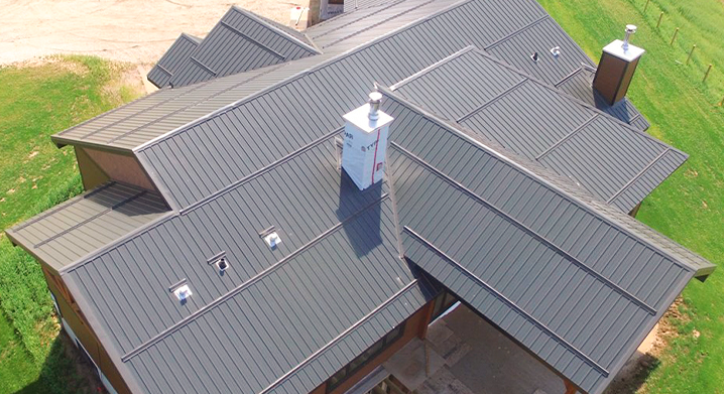There comes a time when you have to go for new roofing. Updating your old roof with a new one is a huge investment for your home, and you want to ensure that it is done correctly. There are multiple reasons to replace your roof, including aging, leaking, damage, and others. A new roof raises the value of your property and improves its curb appeal for resale.
Whenever the time comes for a new roof, builders and commercial roofing contractors often choose one of two methods: roof tear-off or a roof overlay. In this article, we'll go through both strategies in detail and the benefits and drawbacks of each.
Roof Tear Off
As the name suggests, roof tear-off is when the entire old roof is removed and replaced with a new roof made entirely of new materials.
Advantages
Upgrade Materials
With roof tear-off, you will be able to upgrade all your roofing system materials to new ones. If your decking or underlayment was deteriorating, it will be repaired. Your contractor can also detect and repair any developing leaks, protecting your entire house from moisture and rotting.
Increased Durability
When your roof is rebuilt entirely of new materials, it will last longer and be more resistant to wind, harsh weather conditions, heat, and water. When old materials are discarded, your roofing contractor can examine the roof's structure.
During a tear-off, your contractor will be able to completely inspect all areas of your roof and make repairs to prevent any potential problems from causing major damage.
Increased Property Value
According to realtors, a new roof can increase the resale value of your property by more than $10,000. A new roof is an excellent selling point. While an overlay is a quick and affordable solution, a tear-off is a better option. It raises your home's appraised value.
Lower Maintenance
The need for maintenance is significantly reduced because your complete roofing system is being replaced with brand-new materials. Metal roofing is already a low-maintenance material, and by replacing every component of the system, you may enjoy an even lower maintenance roof. Especially since the likelihood of problems happening in the future is reduced!
Disadvantages
Increased Cost
Tearing off is more expensive than overlaying since it needs more time, effort, and materials, as well as removing old roofing material. However, many owners believe that the investment is well worth it because underlying concerns may be treated and future issues prevented. A tear-off roof replacement is expected to cost 25% more than an overlay.
Time Taking Process
Another disadvantage of tearing off is that it involves removing the old material and replacing it with the new one. This takes more time and money compared to the lay-off method.
Roof Overlay
Roof overlay refers to the process of retaining your existing roof while installing a new roofing system right on top of it.
Advantages
Lower costs
Because placing new roofs over existing ones requires far less labor, an overlay will cost you less than a roof tear-off. You'll save money since your builder won't have to rent a dumpster or deal with disposal regulations.
If you plan to replace your roof within the next five to ten years, an overlay is a cost-effective method to enjoy the look of a new roof meanwhile. Just keep in mind that the additional layer of the roofing will increase the cost of your next roof replacement.
Time-Saving Method
Since the new material is simply put on top of the old material. Overlaying off can be a time-saving method that can be completed in days, unlike the tear-off method which needs weeks.
Carries Lesser Risks
When compared to a total roof replacement, an overlay job has a lot less that can go wrong. There's no chance of an unexpected storm interfering with the dry-in process, no falling debris damaging your porch or car, and no large containers destroying your garden.
Disadvantages
Shorter Lifespan
As you may assume, new roofs installed over broken shingles and rotting decking will not last as long. To complicate things, a two-layer shingle roof retains more heat, High Probability of Trapped Moisture Quickening deterioration.
High Probability Of Trapped Moisture
When brand new materials are laid directly on top of old materials, the possibility of moisture and other kinds of humidity getting trapped between the two sets of materials increases. This increases the likelihood of new mold, rotting, and other water damage arising.
Structural Problems
Besides these issues, another important factor to consider is the structural problem that roof overlay can cause. This includes an increase in weight, uneven weight distribution, and additional stress. You cannot examine the state of the roof structure if you use the overlay option. It could be rotten or damaged.
To Sum Up
When choosing between roof overlay and tear-off, there is one better, more environmentally friendly choice. Many roofing firms do not recommend laying a new roof on top of an old one. While roof overlay is a quick and inexpensive solution, it may not be the safest option for your home or family. When deciding on roofing, make sure to hire a professional roofing company to avoid inconveniences.





